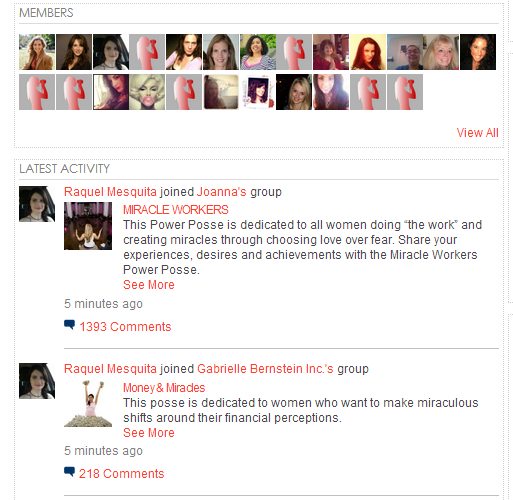MASTER LIST of Social Community Platforms

Develop Your Own Social Media Site with Help from Website Magazine's MASTER LIST of Social Community Platforms
Take a look at your own analytics. Are social networks like Facebook and Twitter really driving that much traffic to your website? Probably not. There's evidence that not only are users not really coming (particularly if your search marketing campaigns are effective), but they are also not doing much of anything when they are there.
Social media networks, as a channel, however, shouldn't be avoided. What's been done wrong in the opinion of many (including myself) up to this point is that we as Web workers are simply handing over the power of engagement (or at least sharing it) to the fine folks at those multi-billion dollar social networks. The solution? Develop your own social media site. That'll show 'em.
Make no mistake, you should develop, maintain and manage a presence on social media networks. In certain scenarios, I even believe businesses should advertise on those networks (following the many best practices of course.) Yet, there's just no substitute to keeping users at your website and viewing your assets at the virtual properties in your control (mobile apps, websites, etc.). And the good news? There are plenty of software vendors lining up at your digital door from which your enterprise can choose.
There are obviously numerous challenges related to hosting and managing your own social community online, but the opportunities for engagement online are many, so let Website Magazine's Master List of Social Community Platforms point you in the right direction.
Hoop.la: Offers member blogging, forums, chat rooms and message boards, as well as multimedia support (videos, photos, etc. can be uploaded by users), and private messaging. Hoop.la is also mobile ready and its core design is customizable. Pricing starts at $200 and increases based on membership, disk space, chat room participants and page views generated.

Social Engine: A popular solution for mid-size enterprises, Social Engine offers member profiles, private messaging, blogging and multimedia (photo and video) support, chat and instant messaging, member forums, music sharing as well as classified as polls. Pricing for the PHP version is $299 (one time) and its cloud-based offering (pictured) starts at $29/mo.

Ning: One of the more established social community platforms, Ning offers excellent community features, and very strong publishing tools and social integrations. Pricing for the cloud-based service ranges from $25-$100 (and up) depending on the number of members, administrators and presence of additional features. (HerFuture.com is one site using Ning, participation on the site can be seen below.)

BuddyPress: The most popular solution for self-hosted WordPress blogs, BuddyPress offers a robust collection of core features but its true value comes in the 300-plus plugins which can be used to enhance an installation. BuddyPress is open-source, although many of its best plugins are offered on a paid basis. For example, the Super Socializer plugin offers a variety of social features like social login and Facebook commenting (pictured below), which replaces traditional commenting on blog posts.

There are numerous other vendors offering software to help Web-minded enterprises develop their own social community software platform including KickApps, Elgg, Yuku and GroupSite to name a few. Do you know of others? Share those software solutions below with Website Magazine readers.

Subscribe to Our Newsletter!
Latest in Social Media










